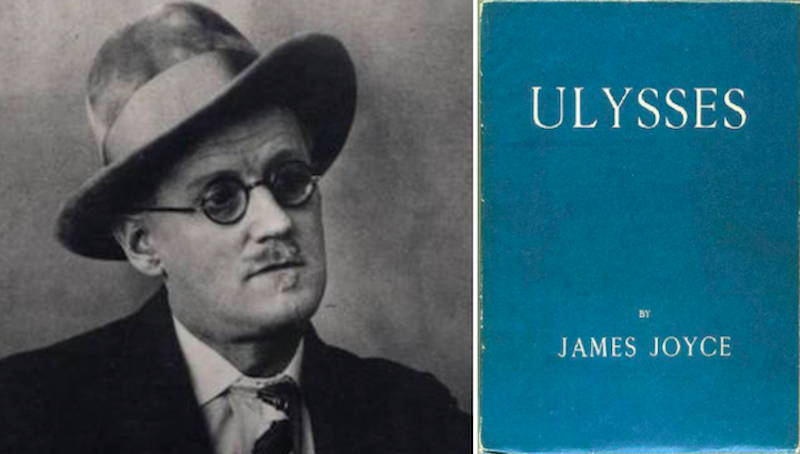Introduction
Top 5 Books That Revolutionized English Literature With centuries of outstanding works that have influenced not only the literary canon but also the social, philosophical, and cultural fabric of society, English literature has a lengthy and rich history.
Some novels have stood out as revolutionary throughout this history—works that challenged the conventions of language, storytelling, and the function of literature itself. In addition to reflecting their times, these works altered them by offering fresh perspectives on writing, thinking, and interacting with the outside world.
These pieces’ capacity to question accepted wisdom, present novel concepts, and transcend the strict limitations of conventional forms is what gives them their revolutionary potential. The direction of English literature was changed by these books, and their impact is still felt now.
Future generations of writers and readers were able to explore the boundless possibilities of language and imagination because of these works, whether it was through the transformation of narrative structure, the exploration of new genres, or the presentation of ideas that were ahead of their time.
1. “Don Quixote” by Miguel de Cervantes (1605)
Despite being initially written in Spanish, Don Quixote has had a significant impact on English literature. With its intricate interaction between fact and imagination and its sophisticated narrative technique, this book—often hailed as the first modern novel—revolutionized literature. Even though Cervantes’ masterwork did not originate in the English-speaking world, English writers enthusiastically read and appreciated it, and it had a profound impact on the evolution of English narrative.
A. Breaking Traditional Storytelling Structures
Don Quixote broke away from the traditional medieval tales of knights and chivalric romance, infusing them with satirical humor, psychological complexity, and a reflection of the realities of everyday life.
Through the story of Don Quixote and his faithful squire Sancho Panza, Cervantes introduced a new style of storytelling—one that blended humor with social commentary and explored the gap between idealism and reality. The narrative structure of the book, with its metafictional elements and self-reflection, also laid the groundwork for modern narrative techniques in later English novels.
Read more
B. Influence on English Writers
English authors such as Samuel Johnson, Laurence Sterne, and even Charles Dickens drew inspiration from Cervantes’ work. The combination of social critique, humor, and the development of a deep, flawed protagonist would become hallmarks of English literature in the centuries to come. Don Quixote ultimately laid the foundation for the development of the novel as a serious literary form.
2. “Paradise Lost” by John Milton (1667)
Milton’s epic poem Paradise Lost is not only a monumental achievement in English literature but also one of the defining works of Western literature. This ambitious and complex work explores themes of creation, free will, sin, and redemption, offering a retelling of the biblical story of Adam and Eve, as well as a philosophical exploration of good and evil.
A. Reimagining Epic Poetry
Paradise Lost broke from the classical epic traditions of Homer and Virgil, combining theological themes with political and personal reflections. Milton’s use of blank verse (unrhymed iambic pentameter) was groundbreaking for its time and had a profound influence on English poetry. The poem’s intricate language, vivid imagery, and intellectual depth have made it a central text in the study of English literature.
B. Religious and Philosophical Impact
The exploration of free will and the nature of evil in Paradise Lost had a lasting influence on both literature and philosophy. Milton’s portrayal of Satan as a tragic, rebellious figure challenged conventional notions of good and evil, inviting readers to question the nature of divine justice and human responsibility.
The poem’s complex depiction of religion, morality, and human experience paved the way for later works of literature that grappled with similar existential questions.

3. “Frankenstein” by Mary Shelley (1818)
Top 5 Books That Revolutionized English Literature Mary Shelley’s Frankenstein is widely regarded as the first true science fiction novel, but its influence extends far beyond the genre. It was revolutionary in its exploration of the boundaries between humanity and science, as well as its questioning of the role of the creator and the responsibility that comes with creation.
A. A New Genre Emerges
With Frankenstein, Shelley introduced a new genre that fused Gothic horror with speculative fiction, exploring the ethical implications of scientific progress. The story of Victor Frankenstein and his monstrous creation raised profound questions about the limits of human knowledge and the consequences of overreaching ambition. Frankenstein was a precursor to later works of science fiction, including the works of H.G. Wells and Philip K. Dick, and its themes of creation, responsibility, and the dangers of unchecked power continue to resonate in modern literature and film.
B. Social and Ethical Implications
Top 5 Books That Revolutionized English Literature Shelley’s novel also questioned the role of women in the scientific and intellectual realms. Through the character of Elizabeth and the absence of any major female scientist in the novel, Frankenstein implicitly comments on the limitations placed on women during the early 19th century, while also raising important ethical questions about the responsibility of scientific inquiry.
4. “Jane Eyre” by Charlotte Brontë (1847)
Jane Eyre was a revolutionary novel in its depiction of a strong, independent female protagonist who defied the traditional conventions of Victorian society. Charlotte Brontë’s exploration of issues such as social class, gender roles, morality, and the nature of love challenged the conventions of the time and made a lasting impact on the novel form.
Read more
A. Feminist Literature
Top 5 Books That Revolutionized English Literature At the time of its publication, Jane Eyre was considered controversial due to its portrayal of a woman who asserts her own independence and refuses to conform to societal expectations. The novel’s feminist themes, including its focus on women’s autonomy, moral integrity, and sexual agency, marked a significant departure from the more passive, idealized female characters that were common in Victorian literature.
B. Psychological Depth and Realism
The novel also revolutionized the portrayal of the psychological depth of its characters, especially Jane Eyre. The emphasis on inner conflict, moral dilemmas, and personal growth was groundbreaking for its time, and Brontë’s exploration of the complex relationships between characters influenced later psychological novels, including works by Henry James and Virginia Woolf.
5. “Ulysses” by James Joyce (1922)
Top 5 Books That Revolutionized English Literature James Joyce’s Ulysses is often considered one of the most important and revolutionary novels of the 20th century. Its stream-of-consciousness narrative technique, its experimental style, and its deep engagement with literary tradition made it a groundbreaking work that continues to challenge readers and scholars alike.
A. Stream of Consciousness and Modernism
Ulysses broke with traditional narrative conventions by using the stream-of-consciousness technique, which attempts to capture the inner workings of the mind in a raw, unfiltered manner. This approach would go on to influence a vast number of 20th-century writers, from Virginia Woolf to William Faulkner. Joyce’s focus on everyday life, the fragmented narrative, and the use of allusions to classical literature transformed the novel into a modernist masterpiece.
B. Redefining the Novel Form
Top 5 Books That Revolutionized English Literature The complexity and experimental nature of Ulysses pushed the boundaries of the novel form itself, questioning the very structure of storytelling. Joyce’s work invited readers to challenge the idea that novels should follow linear plots or conventional narrative structures. It emphasized the importance of individual consciousness and the subjective experience, which would become central themes in modernist literature.

Conclusion
Top 5 Books That Revolutionized English Literature These five works—Ulysses, Jane Eyre, Frankenstein, Paradise Lost, and Don Quixote—reflect significant junctures in the development of English literature. Whether via the creation of new genres, the investigation of difficult social and philosophical problems, or changes in narrative style, each of these works challenged established literary norms.
These works are revolutionary because they raise issues of identity, morality, and the human condition, challenge the status quo, and serve as an inspiration for upcoming authors.
It becomes evident as we read and analyze these influential works that literature is a force that has the power to influence and change the path of history rather than merely reflecting society. These novels created new ideas about what literature could be, and generations have been influenced by them ever since.
Top 5 Books That Revolutionized English Literature They continue to be enduring contributions to the literary world because of their innovative narrative and examination of important subjects.
Read more
FAQ
1. What makes these five books revolutionary?
These books revolutionized English literature by challenging traditional storytelling techniques, exploring new genres, and addressing complex social, philosophical, and moral questions. Their influence can be seen in the development of modern literary forms and their lasting impact on literature and culture.
2. Why is Don Quixote important despite being written in Spanish?
Don Quixote is considered a revolutionary work because it introduced new narrative techniques and a more complex form of storytelling that influenced English literature. Its themes of idealism versus reality and the complexities of human nature resonated with English authors, who drew inspiration from its structure and ideas.
3. How did Paradise Lost change the way literature deals with religion?
Paradise Lost redefined religious and philosophical discourse in literature by offering a complex, nuanced portrayal of biblical themes. Milton’s portrayal of Satan as a tragic, rebellious figure and his exploration of free will and divine justice raised important questions about morality, human responsibility, and the nature of good and evil.
4. What genre did Frankenstein help create?
Frankenstein is often credited with being the first true science fiction novel. It combined elements of Gothic horror with speculative fiction, and its exploration of scientific ethics, creation, and responsibility set the stage for future works in the genre.
5. Why is Ulysses considered so difficult to read?
Ulysses is known for its experimental writing style, particularly its use of stream-of-consciousness and its fragmented narrative. The novel’s dense allusions to classical literature, its complex structure, and its focus on individual consciousness make it a challenging but rewarding read for those willing to dive into its complexities.
Read more
















